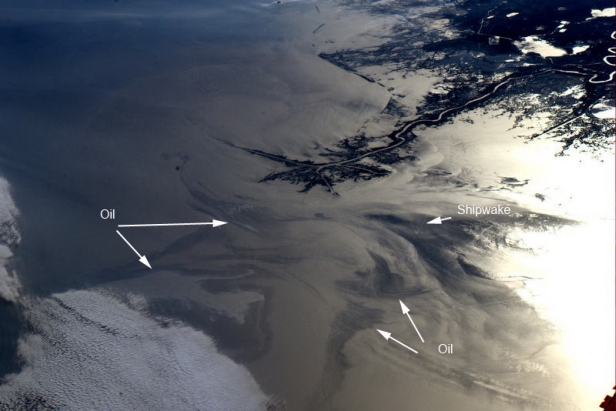Add this to every other sort of headache the Gulf of Mexico spill has caused: It’s now an international relations problem too. As Brendan DeMelle reports, the State Department has sent diplomatic notice about the spreading oil threat to Mexico, the Bahamas, the Marshall Islands, and even Cuba, a nation with which we do not have formal diplomatic relations:
The State Department communicated with Cuba yesterday in a “good neighbor” gesture, according to Charles Luoma-Overstreet, State Department spokesperson for Western Hemisphere Affairs.
Mr. Luoma-Overstreet told me that, under the terms of the Cartagena Convention, the nations have a duty to alert each other whenever environmental threats at sea emerge.
“In responding to oil spill incidents, countries have a general obligation to cooperate to protect both the marine and coastal environments to the extent possible and within their capabilities,” he said.
Sending brownish-red oil lapping up onto Cuba’s shores probably isn’t the best way to convince the communist nation of the virtues of capitalism (or whatever it is we’re trying to accomplish with our 50-year embargo against the neighbor state). No one knows for certain where oil will end up, though the slick has entered an ocean current that’s carrying it toward Florida and Cuba.
In other foreign aid news, the following countries have offered help to the U.S. Coast Guard:
- Canada
- Mexico
- Korea
- Croatia
- France
- Germany
- Ireland
- Japan
- Netherlands
- Norway
- Romania
- Russia
- Spain
- Sweden
- United Arab Emirates
- United Kingdom
- Vietnam
The Coast Guard hasn’t taken any of them up on the offers, although BP has reportedly accepted help from Norway and Mexico. But if any of these countries knows how to pass a clean-energy plan through the unresponsive U.S. Senate, we’ll accept their help.




